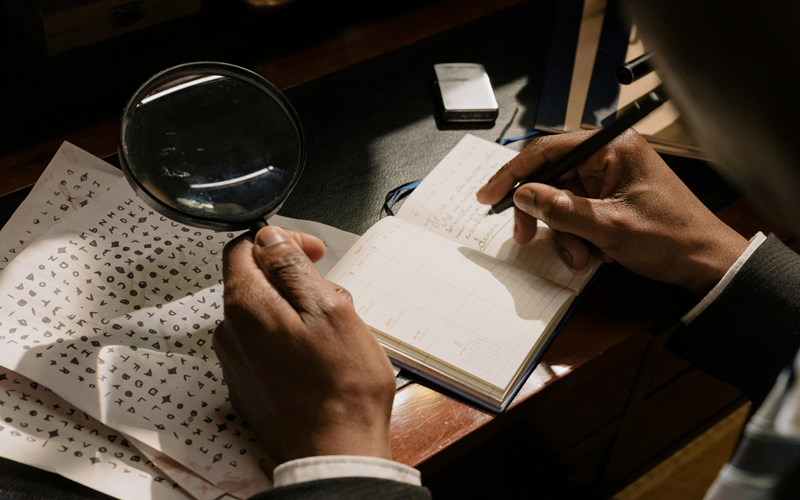“Words are, in my not-so-humble opinion, our most inexhaustible source of magic.”
– J.K. Rowling
The world of words, once a powerful current shaping culture and connection, is increasingly fading into the noise of instant communication. Writing, as an art form, is retreating, its subtle beauty overshadowed by brevity, emojis, and the ever-present pressure to “move fast and say little.”
But why does this matter? Writing is more than just a skill; it is a vessel of thought, emotion, and identity. As the art withers, so too does our ability to connect deeply—with ourselves, with each other, and with the world. Let’s take a moment to explore what we are losing, why it matters, and how we might keep this quiet art alive.
From Quills to Keyboards
A History of Expression
Writing has never been just about words on a page. It has been the tether of civilizations, the means through which humans share dreams, fears, and discoveries. From cuneiform tablets to handwritten letters, writing has always been personal, reflective, and enduring.
But fast-forward to today: paper is replaced by pixels, and ink by taps on a screen. Letters of love and longing have given way to instant messages punctuated with GIFs. Convenience has reshaped writing, making it faster but also shallower, more transient. The deliberate nature of putting pen to paper is nearly extinct, replaced by quick, utilitarian exchanges and WhatsApp messages that vanish as quickly as they appear. The permanence of words, once a comforting anchor, has become fleeting.
The Digital Divide
Technology has gifted us speed but robbed us of patience. “You” becomes “U,” emotions shrink into emojis, and complex thoughts are trimmed into clickable soundbites. While we are more connected than ever, the quality of those connections often feels diminished.
This shift raises a critical question: can the profound coexist with the instant? Or does the art of writing need slowness, time to breathe, and space to unfurl?
The Subtle Loss: Depth, Reflection, and Introspection
Writing as a Mirror to Oneself
At its core, writing is a dialogue with oneself. It demands that we sift through the chaos of our thoughts, untangling emotions and ideas until they form something meaningful. Writing forces us to slow down, to reflect, and to articulate what we often leave unsaid.
When was the last time you wrote—not to meet a deadline or impress an audience, but simply to express yourself? In our hurried lives, we rarely pause to listen to our inner voice. In losing writing, we lose reflection. Without it, thoughts skim the surface, never diving into the depths where clarity and creativity reside.
Stories That Define Us
Think about the books that shaped you, the letters that brought comfort, or the poems that gave words to feelings you couldn’t name. These weren’t products of haste; they were crafted with care and intention. In letting go of writing, we risk losing the permanence and power of such profound moments.
Without writing, our stories risk becoming whispers—brief, ephemeral, and easily forgotten.
Writing in a World of Noise
The Age of Performative Writing
In today’s digital landscape, writing has become more public than ever. Tweets, hooks and captions have made us publishers, but they’ve also made us performers. Do we write because we truly have something to say, or because we need to say something to stay visible?
This pressure to produce content dilutes the authenticity of writing. Instead of a medium for deep thought, it becomes a tool for validation. The art of writing, once a private sanctuary, is now on display, curated for clicks and likes.
The Risk of Losing Nuance
The brevity of modern communication leaves little room for nuance. A tweet or a text cannot convey the layers of human experience that a letter or essay can. In simplifying our language, we risk simplifying our emotions and, by extension, our humanity.
But the art of writing doesn’t have to die. It simply needs a revival—a conscious effort to value depth over speed, substance over style.
Why Writing Still Matters
Words That Outlive Us
To write is to leave a part of ourselves behind. Long after we are gone, our words can continue to speak—to comfort, inspire, or challenge those who find them. Writing gives us a way to shape the future, to reach across time and space, and to connect with others in a profoundly human way. Writing is immortality in ink.
A Skill That Builds the Soul
Writing is more than a means of communication; it’s a way of thinking. The act of putting thoughts into words forces clarity and fosters empathy. In a world increasingly divided, writing can be a unifying force, reminding us of our shared humanity.
Whether it’s a heartfelt letter, a personal essay, or even a diary entry, writing helps us process the world around us. It’s a space where we can linger, reflect, and grow.
A Call to Action: Revive the Pen
The art of writing may be fading, but it doesn’t have to disappear. The choice to preserve it lies in our hands—or rather, in our pens. Writing isn’t something reserved for authors or poets; it’s a deeply human act, available to anyone willing to take the time. Reclaiming this dying craft is not about grand gestures but about small, intentional efforts that bring words back to life.
Start a Journal
A journal is more than a collection of thoughts; it’s a conversation with yourself. Begin by writing a few lines a day—about your morning coffee, a fleeting thought, or a dream you can’t shake. Don’t aim for perfection; aim for honesty.
Why it matters: Journaling slows down your mind. It teaches you to notice the details and value the small moments often lost in the rush of life.
Pen a Letter
Think of someone who matters to you—a parent, a friend, or a partner. Sit down and write them a letter, even if you never intend to send it. Write about the things you appreciate, the memories you cherish, or the questions you’ve been meaning to ask.
Why it matters: A handwritten letter is tangible proof of care. It forces you to articulate emotions you might otherwise gloss over, deepening your connection to both the recipient and yourself.
Write Without an Audience
We often write with someone else in mind—a reader, a follower, or an imaginary critic. But what happens when you write just for yourself? Set aside a time to write something no one will ever see. It could be a story, a poem, or even a rambling stream of consciousness.
Why it matters: Writing without an audience allows you to explore your thoughts freely, without fear of judgment. It’s a liberating exercise that reconnects you to the joy of creation for its own sake.
Celebrate the Art in Everyday Writing
Not every piece of writing has to be monumental. Send a thoughtful email, write a meaningful Instagram caption, or jot down a to-do list with flair. Infuse intentionality into even the most mundane forms of writing.
Why it matters: By treating all writing as an art, you cultivate mindfulness and creativity in your daily life.
Half-Said, Fully Felt
Writing is about more than just words; it’s about capturing the essence of what often goes unsaid. Much like the ethos of Half-Said, it’s a space where emotions, thoughts, and truths can breathe freely.
The art of writing may seem to be fading, but its quiet retreat is not a surrender—it’s a challenge. A whisper urging us to pick up the pen, to reclaim what is half-said before it is wholly lost.
What will you write today? Will you let your thoughts linger on the page, leaving behind a legacy of depth and reflection? Or will you let them slip away, unspoken?
The choice, as always, is yours.




